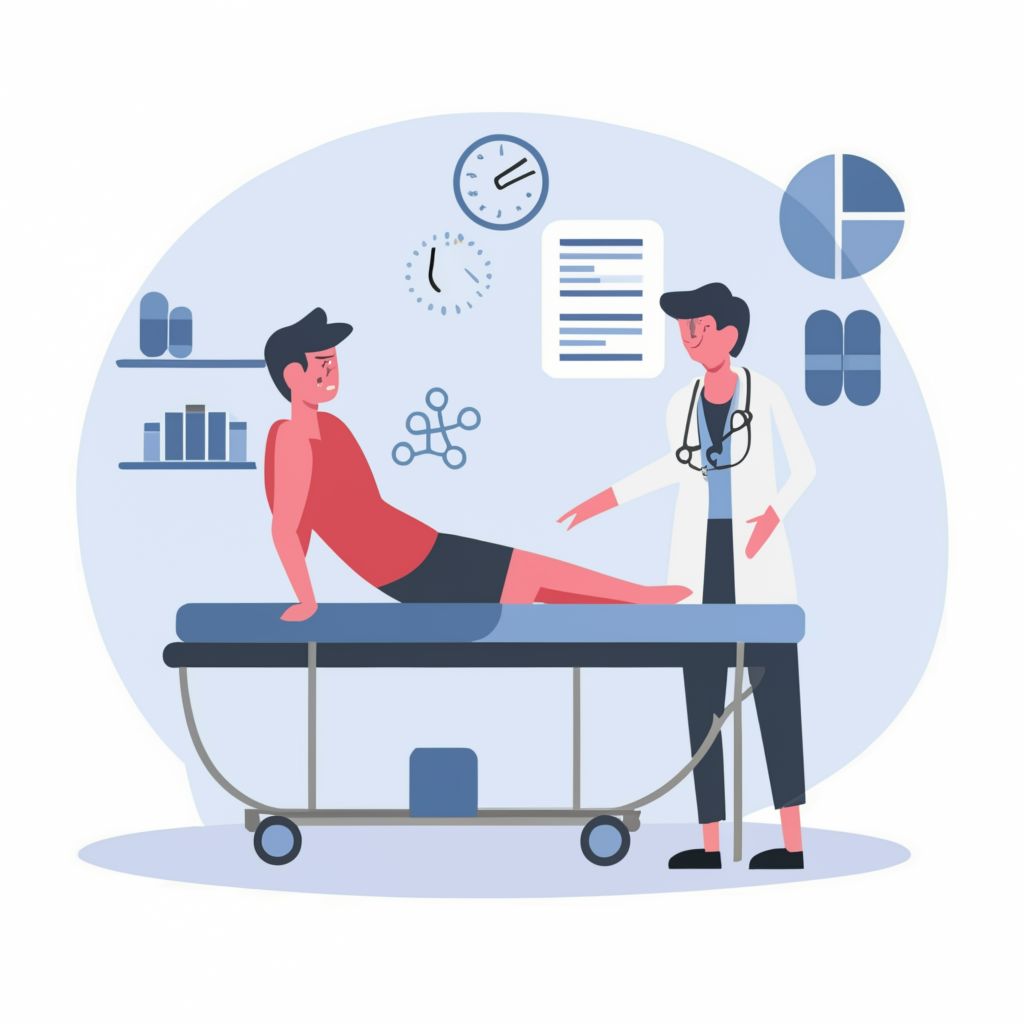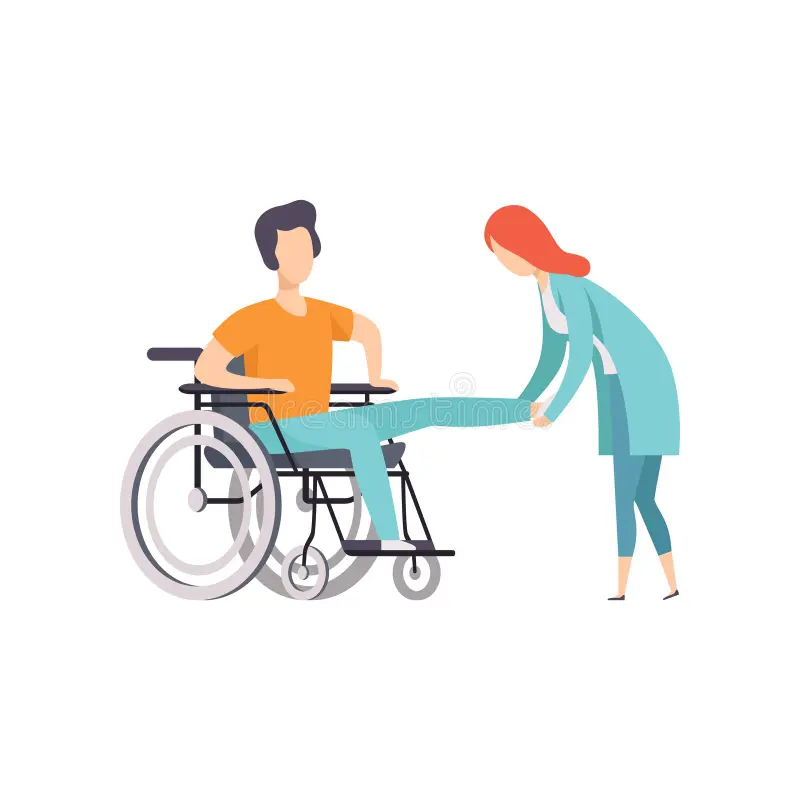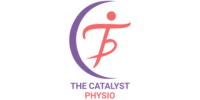Transforming Healthcare: Home Physiotherapy Services in Delhi NCR
Introduction

Home physiotherapy services in Delhi NCR have emerged as a beacon of hope for individuals seeking quality healthcare in the comfort of their homes. In a bustling metropolis like Delhi, where traffic congestion and long commutes are the norm, the concept of receiving physiotherapy at home offers unparalleled convenience and relief. This article delves into the myriad benefits and accessibility of such services, shedding light on how they are revolutionizing healthcare delivery.
Benefits of Home Physiotherapy Services in Delhi NCR

Home Physiotherapy Services in Delhi NCR offers numerous benefits for individuals recovering from injuries, surgeries, or managing chronic conditions. Here are some of the key advantages:
- Convenience: One of the primary benefits of Home Physiotherapy Services in Delhi NCR is the convenience it offers. Patients can receive therapy sessions in the comfort of their own homes, eliminating the need to travel to a clinic or hospital.
- Personalized Care: Home physiotherapy allows for more personalized care tailored to the individual needs of the patient. The physiotherapist can assess the patient’s home environment and develop a treatment plan that aligns with their specific goals and challenges.
- Increased Comfort and Familiarity: Being in familiar surroundings can promote relaxation and reduce anxiety, leading to better treatment outcomes. Patients may feel more comfortable and at ease during home physiotherapy sessions, which can facilitate faster recovery.
- Enhanced Privacy: Some patients may prefer the privacy of their own home over a clinical setting. Home physiotherapy provides a more private and intimate setting for therapy sessions, allowing patients to feel more comfortable discussing their concerns and goals with their physiotherapist.
- Improved Compliance: Research has shown that patients are more likely to adhere to their physiotherapy regimen when receiving treatment at home. With the support of family members and familiar surroundings, patients may be more motivated to participate actively in their rehabilitation program.
- Family Involvement: Home physiotherapy sessions offer an opportunity for family members to be actively involved in the patient’s care. Family members can observe the therapy sessions, learn exercises and techniques to assist with the patient’s recovery, and provide valuable support and encouragement.
- Cost-Effective: In some cases, home physiotherapy may be more cost-effective than clinic-based treatment, especially when considering factors such as transportation costs and time off work. Additionally, home physiotherapy can help reduce the risk of hospital readmissions and complications, potentially saving healthcare costs in the long run.
- Customized Home Exercise Programs: Physiotherapists can design customized home exercise programs that patients can perform independently between therapy sessions. These exercises are tailored to the patient’s condition and goals, helping to improve strength, flexibility, and mobility over time.
- Safe and Controlled Environment: Home physiotherapy allows patients to practice their exercises and activities of daily living in a safe and controlled environment under the supervision of a qualified physiotherapist. This reduces the risk of injury and ensures that patients are performing exercises correctly to maximize their benefits.
- Continuity of Care: By receiving physiotherapy at home, patients can maintain continuity of care throughout their recovery journey. The physiotherapist can closely monitor their progress, adjust treatment plans as needed, and provide ongoing support and guidance to help patients achieve their rehabilitation goals.
Availability and Accessibility
At Home Physiotherapy Services in Delhi NCR, we prioritize the availability and accessibility of our services to ensure that patients receive the care they need when and where they need it most. Our team of dedicated physiotherapists is committed to providing high-quality care in the comfort of patients’ homes, making rehabilitation convenient and accessible for individuals across the Delhi NCR region. With our flexible scheduling options and widespread coverage area, patients can easily book appointments at their preferred time and location, ensuring that they receive timely and effective treatment. Whether you’re recovering from an injury, managing a chronic condition, or seeking preventive care, our home physiotherapy services are available to support your rehabilitation journey every step of the way. Experience the convenience and accessibility of home-based physiotherapy with Home Physiotherapy Services in Delhi NCR today!
Importance of Qualified Professionals
Central to the success of home physiotherapy services in Delhi NCR is the presence of qualified professionals. Physiotherapists specializing in home care possess the expertise to address a diverse range of conditions, from orthopedic injuries to neurological disorders. Their proficiency ensures that patients receive safe, effective, and evidence-based interventions tailored to their specific needs.

Tailored Treatment Plans
In the realm of healthcare, one size does not fit all. Each individual presents with a unique medical history, physiological characteristics, lifestyle factors, and personal preferences. As such, the concept of tailored treatment plans has emerged as a cornerstone of modern healthcare practice. By customizing treatment approaches to meet the specific needs of each patient, healthcare providers can optimize outcomes, enhance patient satisfaction, and improve overall quality of care.
Understanding Tailored Treatment Plans
Tailored treatment plans, also known as personalized or individualized treatment plans, are comprehensive strategies designed to address the specific healthcare needs and preferences of each patient. These plans take into account various factors, including the patient’s medical history, diagnosis, symptoms, co-morbidities, genetic predispositions, socio-economic status, cultural background, and personal preferences. By considering these factors, healthcare providers can develop treatment plans that are uniquely suited to each patient’s circumstances, maximizing the likelihood of successful outcomes.
The Importance of Tailored Treatment Plans

The importance of tailored treatment plans cannot be overstated. In healthcare, one of the primary goals is to achieve the best possible outcomes for patients while minimizing the risk of adverse events and complications. Generic, one-size-fits-all treatment approaches may not effectively address the diverse needs of individual patients, leading to suboptimal outcomes and dissatisfaction among patients.
Tailored treatment plans offer several key advantages:
- Optimized Outcomes: By tailoring treatment approaches to each patient’s unique characteristics and needs, healthcare providers can optimize treatment efficacy and improve patient outcomes. This personalized approach ensures that interventions are aligned with the patient’s specific goals and preferences, leading to more successful treatment outcomes.
- Enhanced Patient Satisfaction: Patients are more likely to be satisfied with their healthcare experience when they feel that their individual needs and preferences are being addressed. Tailored treatment plans demonstrate a commitment to patient-centered care, fostering trust and collaboration between patients and healthcare providers. This, in turn, leads to higher levels of patient satisfaction and engagement in the treatment process.
- Improved Adherence and Compliance: Tailored treatment plans take into account factors such as patient preferences, lifestyle, and socio-economic status, which can significantly impact treatment adherence and compliance. By aligning treatment recommendations with the patient’s values and circumstances, healthcare providers can improve adherence to treatment regimens, leading to better outcomes and reduced healthcare costs.
- Reduced Risk of Adverse Events: Tailored treatment plans help minimize the risk of adverse events and complications by considering factors such as co-morbidities, genetic predispositions, and medication interactions. By taking a holistic approach to patient care, healthcare providers can identify and mitigate potential risks, enhancing patient safety and well-being.
- Cost-Effectiveness: While tailoring treatment plans may require additional time and resources upfront, it can ultimately lead to cost savings in the long run. By optimizing treatment outcomes and reducing the risk of complications, tailored treatment plans can help minimize healthcare utilization and associated costs, making healthcare delivery more efficient and sustainable.
Components of Tailored Treatment Plans

Tailored treatment plans are comprehensive and multifaceted, incorporating various components to address the diverse needs of individual patients. Some key components of tailored treatment plans include:
- Comprehensive Assessment: The first step in developing a tailored treatment plan is to conduct a comprehensive assessment of the patient’s medical history, current health status, symptoms, and functional abilities. This assessment may include physical examinations, diagnostic tests, imaging studies, and laboratory investigations to gather relevant information about the patient’s health.
- Patient Preferences and Goals: Healthcare providers collaborate with patients to identify their preferences, values, and treatment goals. Understanding what matters most to the patient allows healthcare providers to tailor treatment recommendations to align with the patient’s values and priorities.
- Evidence-Based Interventions: Tailored treatment plans are grounded in evidence-based practice, incorporating interventions that are effective in similar patient populations. Healthcare providers draw on clinical guidelines, research evidence, and best practices to inform their treatment recommendations.
- Multidisciplinary Approach: In many cases, tailored treatment plans involve a multidisciplinary team of healthcare professionals working collaboratively to address the diverse needs of the patient. This may include physicians, nurses, physical therapists, occupational therapists, social workers, dietitians, and other specialists who contribute their expertise to the patient’s care.
- Flexibility and Adaptability: Tailored treatment plans are flexible and adaptable, allowing for adjustments based on the patient’s response to treatment, changes in health status, and evolving needs over time. Healthcare providers regularly review and revise treatment plans to ensure that they remain relevant and effective in meeting the patient’s goals.
- Patient Education and Empowerment: Tailored treatment plans include provisions for patient education and empowerment, equipping patients with the knowledge, skills, and resources they need to actively participate in their care. Educating patients about their condition, treatment options, self-management strategies, and potential risks empowers them to make informed decisions and take control of their health.
Examples of Tailored Treatment Plans

Tailored treatment plans can be applied across various healthcare settings and specialties, including:
- Chronic Disease Management: Patients with chronic conditions such as diabetes, hypertension, asthma, and arthritis benefit from tailored treatment plans that address their unique needs, risk factors, and lifestyle factors. These plans may include medication management, dietary modifications, physical activity recommendations, self-monitoring strategies, and education about symptom management and disease progression.
- Cancer Care: Cancer treatment plans are highly individualized, taking into account factors such as the type and stage of cancer, the patient’s overall health status, treatment goals, and preferences. Tailored treatment plans for cancer may include surgery, chemotherapy, radiation therapy, immunotherapy, targeted therapy, supportive care, and palliative care, with a focus on maximizing survival and quality of life.
- Rehabilitation Services: Patients recovering from injuries, surgeries, or debilitating illnesses benefit from tailored rehabilitation plans that address their specific functional limitations, mobility challenges, and goals for recovery. These plans may include physical therapy, occupational therapy, speech therapy, assistive devices, home modifications, and community resources to support the patient’s recovery and reintegration into daily life.
- Mental Health and Well-being: Tailored treatment plans for mental health conditions such as depression, anxiety, bipolar disorder, and schizophrenia consider factors such as the patient’s symptoms, co-morbidities, social support network, and treatment preferences. These plans may include medication management, psychotherapy, lifestyle modifications, social interventions, and community support services to promote mental health and well-being.
- Geriatric Care: Older adults with complex medical needs benefit from tailored treatment plans that address age-related changes, functional decline, cognitive impairment, and chronic conditions. These plans may include comprehensive geriatric assessments, medication optimization, fall prevention strategies, caregiver support, and end-of-life care planning to optimize the health and quality of life of older adults.
Challenges and Considerations

While tailored treatment plans offer numerous benefits, they also present certain challenges and considerations that healthcare providers must navigate:
- Resource Constraints: Developing and implementing tailored treatment plans may require additional time, resources, and expertise on the part of healthcare providers. In settings with limited resources or staffing shortages, it may be challenging to deliver personalized care to every patient.
- Information Overload: Tailored treatment plans rely on a wealth of information about the patient’s medical history, diagnosis, symptoms, and preferences. Managing and synthesizing this information can be challenging, particularly in complex cases involving multiple co-morbidities or interdisciplinary care teams.
- Patient Engagement: Effective implementation of tailored treatment plans relies on active engagement and collaboration between patients and healthcare providers. Some patients may have limited health literacy, motivation, or self-efficacy, making it challenging to fully engage in their care and adhere to treatment recommendations.
- Healthcare Disparities: Tailored treatment plans must account for healthcare disparities related to socio-economic status, race, ethnicity, gender, age, geographic location, and other factors. Failure to address these disparities may result in inequitable access to healthcare services and disparities in health outcomes.
- Ethical Considerations: Healthcare providers must navigate ethical considerations related to autonomy, beneficence, non-maleficence, and justice when developing tailored treatment plans. Respect for patient autonomy and preferences is paramount, but providers must also ensure that treatment recommendations are based on sound clinical evidence and aligned with ethical principles.
Future Directions

The concept of tailored treatment plans continues to evolve as healthcare systems adapt to new technologies, evidence-based practices, and patient-centered models of care. Several trends and developments are shaping the future of tailored treatment plans:
- Advancements in Precision Medicine: Precision medicine, also known as personalized medicine, harnesses advances in genomics, biomarkers, and data analytics to tailor treatment approaches to individual patients’ genetic profiles and molecular characteristics. This approach holds promise for improving treatment outcomes and reducing adverse events in various disease settings.
- Integration of Artificial Intelligence: Artificial intelligence (AI) and machine learning algorithms are increasingly being used to analyze vast amounts of patient data and develop predictive models for personalized treatment recommendations. AI-driven decision support tools can help healthcare providers identify optimal treatment strategies based on individual patient characteristics and clinical evidence.
- Expansion of Telemedicine and Remote Monitoring: Telemedicine and remote monitoring technologies enable healthcare providers to deliver tailored treatment plans to patients in remote or underserved areas, as well as those with limited mobility or transportation options. These technologies facilitate virtual consultations, remote patient monitoring, and real-time communication between patients and providers, enhancing access to personalized care.
- Patient-Centered Care Models: Patient-centered care models emphasize the importance of involving patients in decision-making processes, respecting their preferences and values, and addressing their holistic needs. Tailored treatment plans are central to patient-centered care, as they prioritize the individual needs, goals, and experiences of patients, fostering a collaborative partnership between patients and healthcare providers.
- Healthcare Policy and Reimbursement Models: Healthcare policy and reimbursement models play a significant role in shaping the delivery of tailored treatment plans. Policy initiatives that prioritize value-based care, patient-centered outcomes, and population health management are driving efforts to promote personalized approaches to healthcare delivery and payment.
Range of Services Offered

Home physiotherapy services in Delhi NCR encompass a comprehensive range of treatments catering to various medical conditions. From post-operative rehabilitation to chronic pain management, these services cover a broad spectrum of healthcare needs. Additionally, specialized programs such as pediatric physiotherapy and geriatric care ensure that individuals of all ages receive the support they require.
Advanced Equipment
Contrary to common misconceptions, Home physiotherapy services in Delhi NCR are equipped with state-of-the-art facilities and advanced equipment. From portable ultrasound machines to ergonomic exercise apparatus, these resources enable therapists to deliver high-quality care within the confines of a patient’s home. This integration of technology enhances treatment outcomes and augments patient comfort.
Safety Measures
Safety is paramount in home physiotherapy, and stringent measures are in place to ensure the well-being of both patients and therapists. Thorough risk assessments are conducted before each session, and infection control protocols are strictly adhered to. Furthermore, therapists undergo rigorous training to handle emergencies, ensuring prompt and effective responses in unforeseen circumstances.
Cost-Effectiveness
In addition to its numerous conveniences, Home physiotherapy services in Delhi NCR offer significant cost savings compared to traditional clinic-based treatments. By eliminating transportation expenses and minimizing overhead costs, patients can access high-quality care at a fraction of the price. Moreover, many insurance providers now cover home-based rehabilitation services, further reducing out-of-pocket expenses for patients.
Testimonials and Success Stories
The efficacy of Home physiotherapy services in Delhi NCR is best illustrated through real-life testimonials and success stories. Countless individuals have experienced remarkable improvements in their health and well-being following home-based treatment programs. From regaining mobility after a debilitating injury to managing chronic conditions more effectively, these stories serve as inspiring testimonials of the transformative power of home physiotherapy.
Integrating Technology
Advancements in technology have facilitated the seamless integration of telerehabilitation and remote monitoring into Home physiotherapy services in Delhi NCR. Through virtual consultations and wearable devices, therapists can monitor patients’ progress remotely, providing timely guidance and adjustments to their treatment plans. This fusion of healthcare and technology underscores the progressive nature of Home physiotherapy services in Delhi NCR.
Conclusion
In conclusion, Home physiotherapy services in Delhi NCR have emerged as a game-changer in the realm of healthcare delivery, offering unparalleled convenience, personalized care, and cost-effectiveness. By leveraging the expertise of qualified professionals and integrating cutting-edge technology, these services are transforming the way individuals access and experience rehabilitation. Whether you’re recovering from an injury, managing a chronic condition, or seeking preventive care, Home physiotherapy services in Delhi NCR provide a beacon of hope for a healthier tomorrow.
FAQs
- How do I schedule a session for home physiotherapy services in Delhi NCR?
- Scheduling a session for home physiotherapy services in Delhi NCR is simple. Just reach out to a reputable provider in your area and inquire about their services. They will guide you through the process and arrange a convenient appointment based on your availability.
- Are Home physiotherapy services in Delhi NCR suitable for all age groups?
- Yes, Home physiotherapy services in Delhi NCR cater to individuals of all age groups, from infants to seniors. Whether you’re recovering from surgery, managing a chronic condition, or seeking preventive care, home physiotherapy offers personalized solutions tailored to your unique needs.
- What types of conditions can be treated through home physiotherapy?
- Home physiotherapy services in Delhi NCR address a wide range of conditions, including musculoskeletal injuries, neurological disorders, respiratory conditions, and more. Experienced therapists devise comprehensive treatment plans tailored to your specific diagnosis and goals.
- Is home physiotherapy covered by insurance?
- Many insurance providers offer coverage for home physiotherapy services in Delhi NCR, depending on your policy and provider. It’s advisable to check with your insurance company to determine the extent of coverage and any associated eligibility criteria.
- How soon can I expect to see results from home physiotherapy?
- The timeframe for seeing results from home physiotherapy varies depending on the nature and severity of your condition, as well as your response to treatment. Your therapist will work closely with you to establish realistic expectations and milestones along your rehabilitation journey.
- Can I request a specific therapist session for my home physiotherapy services in Delhi NCR?
- While specific therapist requests may be accommodated based on availability, all therapists employed by reputable home physiotherapy providers undergo rigorous training and adhere to strict professional standards. Rest assured that you will receive quality care regardless of the assigned therapist.

